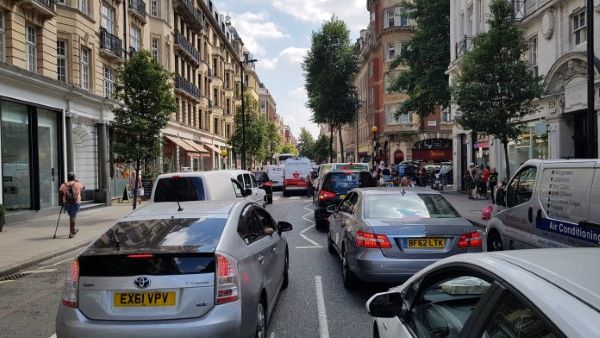
Air pollution in the UK kills more than 500 people a week, a report by the Royal College of Physicians (RCP) has estimated. The UK loses £500 million a week to ill health, NHS care and loss of productivity, the report found.
The impact of air pollution is not felt equally across the population. Previous studies have shown that people living in the most deprived areas also suffer the worst levels of air pollution despite owning fewer cars and driving less than those in more affluent areas.
The RCP report comes a month before a cross-party group of MPs is due to reintroduce a bill that aims to make clean air a human right and requires local authorities to meet the minimum standards for air pollution set by the World Health Organisation. The law is named ‘Ella’s law’, after nine-year-old Ella Adoo Kissi Debrah, who in May 2022 became the first person in England to have air pollution listed as a cause of death when she died from an asthma attack.
However, as the report outlines, there is no safe level of air pollution. The capitalist system is unable to bring about the radical change in heating, transport, and manufacturing needed to keep us safe. Less so is it able to do so in a fair and just way. Motor vehicles are one of the biggest sources of three types of air pollution: carbon monoxide, nitrogen dioxide, and particulate matter.
Many cities have introduced clean air zones to try to combat inner-city air pollution levels, banning older diesel and heavier polluting cars. These plans have been successful in reducing nitrogen oxide levels, and studies in Bradford suggest that fewer people are going to hospital as a result. However, these policies often place the burden of improving air quality on working people who can’t afford to buy new cars while the rich can afford to simply pay the fines. Additionally, since most of the particulate matter comes from the tyres and brake pads, switching to lower-emission cars or even electric vehicles doesn’t reduce this type of pollution.
To meaningfully reduce air pollution from transport, we need free and convenient public transport for all. This would require fully nationalising rail and buses under democratic workers’ control, with the resources needed to expand and improve services.
Investment into active travel such as walking and cycling not only improves air quality but also boosts physical activity. However, cash-strapped councils under the control of all major parties are not prepared to fight for the funding to make it possible.
A democratically planned economy would enable the distribution of goods and products to be produced more efficiently to reduce, for example, the number of lorries needed on the road. Democratic workers’ control of manufacturing industry would also help to ensure that pollutants are monitored and controlled in a transparent way that is acceptable to the communities where factories are based.
